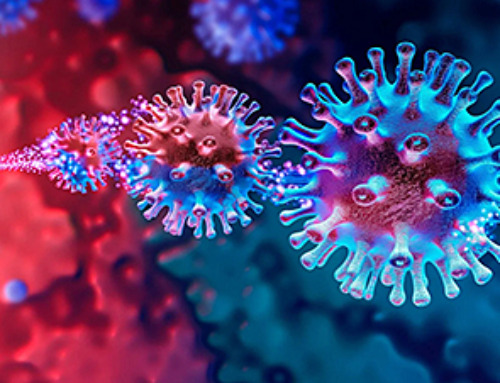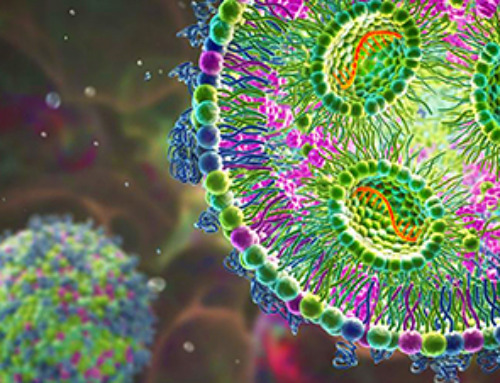The mere scent of seafood can severely sicken those allergic to it — and therefore they are more likely to avoid it. Similarly, individuals who experience food poisoning from a specific dish tend to avoid it afterward.
For a long time, researchers have understood that our immune system plays a key role in our reactions to allergens and pathogens in the environment. However, it was unclear whether it played any role in prompting these types of behaviors toward allergic triggers.
According to Yale-led research recently published in the journal Nature, it turns out that the immune system plays a crucial role in changing our behaviors.
Without immune system communication, the brain does not warn the body about potential dangers in the environment and does not try to avoid those threats, the study shows.
A team in the Medzhitov lab, led by Esther Florsheim, at the time a postdoctoral researcher at Yale and now an assistant professor at Arizona State University, and Nathaniel Bachtel, a graduate student at the School of Medicine, studied mice that had been sensitized to have allergic reactions to ova, a protein found in chicken eggs. As expected, these mice tended to avoid water laced with ova, while control mice tended to prefer ova-laced water sources. The aversion to ova-laced water sources in sensitized mice lasted for months, they found.
The team then examined whether they could alter the behavior of sensitized mice by manipulating immune system variables. They found, for instance, that mice allergic to ova lost their aversion to the protein in their water if Immunoglobulin E (IgE) antibodies, produced by the immune system, were blocked. IgE antibodies trigger the release of mast cells, a type of white blood cell that, along with other immune system proteins, plays a crucial role in communicating to areas of the brain that control aversion behavior. Without IgE as an initiator, the transmission of information was interrupted, so that mice no longer avoided the allergen.
Medzhitov said that the findings illustrate how the immune system evolved to help animals avoid dangerous ecological niches. Understanding how the immune system memorizes potential dangers, he added, could one day help suppress excessive reactions to many allergens and other pathogens.
Reference: “Immune sensing of food allergens promotes avoidance behaviour” by Esther B. Florsheim, Nathaniel D. Bachtel, Jaime L. Cullen, Bruna G. C. Lima, Mahdieh Godazgar, Fernando Carvalho, Carolina P. Chatain, Marcelo R. Zimmer, Cuiling Zhang, Gregory Gautier, Pierre Launay, Andrew Wang, Marcelo O. Dietrich and Ruslan Medzhitov, 12 July 2023, Nature.
DOI: 10.1038/s41586-023-06362-4
News
COVID-19 still claims more than 100,000 US lives each year
Centers for Disease Control and Prevention researchers report national estimates of 43.6 million COVID-19-associated illnesses and 101,300 deaths in the US during October 2022 to September 2023, plus 33.0 million illnesses and 100,800 deaths [...]
Nanomedicine in 2026: Experts Predict the Year Ahead
Progress in nanomedicine is almost as fast as the science is small. Over the last year, we've seen an abundance of headlines covering medical R&D at the nanoscale: polymer-coated nanoparticles targeting ovarian cancer, Albumin recruiting nanoparticles for [...]
Lipid nanoparticles could unlock access for millions of autoimmune patients
Capstan Therapeutics scientists demonstrate that lipid nanoparticles can engineer CAR T cells within the body without laboratory cell manufacturing and ex vivo expansion. The method using targeted lipid nanoparticles (tLNPs) is designed to deliver [...]
The Brain’s Strange Way of Computing Could Explain Consciousness
Consciousness may emerge not from code, but from the way living brains physically compute. Discussions about consciousness often stall between two deeply rooted viewpoints. One is computational functionalism, which holds that cognition can be [...]
First breathing ‘lung-on-chip’ developed using genetically identical cells
Researchers at the Francis Crick Institute and AlveoliX have developed the first human lung-on-chip model using stem cells taken from only one person. These chips simulate breathing motions and lung disease in an individual, [...]
Cell Membranes May Act Like Tiny Power Generators
Living cells may generate electricity through the natural motion of their membranes. These fast electrical signals could play a role in how cells communicate and sense their surroundings. Scientists have proposed a new theoretical [...]
This Viral RNA Structure Could Lead to a Universal Antiviral Drug
Researchers identify a shared RNA-protein interaction that could lead to broad-spectrum antiviral treatments for enteroviruses. A new study from the University of Maryland, Baltimore County (UMBC), published in Nature Communications, explains how enteroviruses begin reproducing [...]
New study suggests a way to rejuvenate the immune system
Stimulating the liver to produce some of the signals of the thymus can reverse age-related declines in T-cell populations and enhance response to vaccination. As people age, their immune system function declines. T cell [...]
Nerve Damage Can Disrupt Immunity Across the Entire Body
A single nerve injury can quietly reshape the immune system across the entire body. Preclinical research from McGill University suggests that nerve injuries may lead to long-lasting changes in the immune system, and these [...]
Fake Science Is Growing Faster Than Legitimate Research, New Study Warns
New research reveals organized networks linking paper mills, intermediaries, and compromised academic journals Organized scientific fraud is becoming increasingly common, ranging from fabricated research to the buying and selling of authorship and citations, according [...]
Scientists Unlock a New Way to Hear the Brain’s Hidden Language
Scientists can finally hear the brain’s quietest messages—unlocking the hidden code behind how neurons think, decide, and remember. Scientists have created a new protein that can capture the incoming chemical signals received by brain [...]
Does being infected or vaccinated first influence COVID-19 immunity?
A new study analyzing the immune response to COVID-19 in a Catalan cohort of health workers sheds light on an important question: does it matter whether a person was first infected or first vaccinated? [...]
We May Never Know if AI Is Conscious, Says Cambridge Philosopher
As claims about conscious AI grow louder, a Cambridge philosopher argues that we lack the evidence to know whether machines can truly be conscious, let alone morally significant. A philosopher at the University of [...]
AI Helped Scientists Stop a Virus With One Tiny Change
Using AI, researchers identified one tiny molecular interaction that viruses need to infect cells. Disrupting it stopped the virus before infection could begin. Washington State University scientists have uncovered a method to interfere with a key [...]
Deadly Hospital Fungus May Finally Have a Weakness
A deadly, drug-resistant hospital fungus may finally have a weakness—and scientists think they’ve found it. Researchers have identified a genetic process that could open the door to new treatments for a dangerous fungal infection [...]
Fever-Proof Bird Flu Variant Could Fuel the Next Pandemic
Bird flu viruses present a significant risk to humans because they can continue replicating at temperatures higher than a typical fever. Fever is one of the body’s main tools for slowing or stopping viral [...]





















